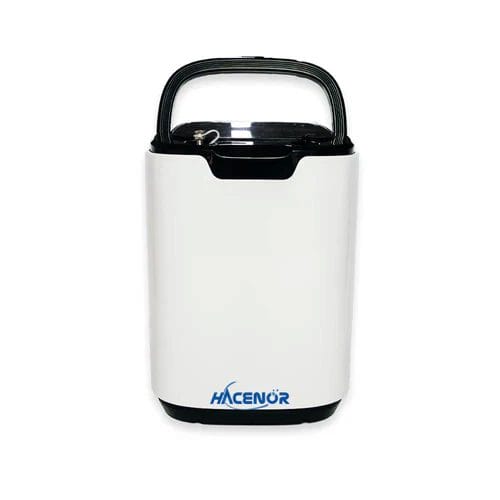
The holiday season is a time for honored traditions and family, but the last few months of the year can also be quite stressful. If you’re trying to create holiday magic for your family while also being the caregiver for a senior loved one, holiday stress is likely familiar to you. You don’t have to do everything in order to create a memorable and cozy holiday. Whether you’re delegating tasks, involving your senior loved one in holiday preparation, reimagining holiday traditions, or other using stress-reducing tactics, we explain our favorite tips for caregivers to manage holiday stress.
Delegate tasks
Caregivers have many responsibilities, and keeping up with them in the final months of the year can contribute to holiday stress, especially if they are also hosting events for other family members. One of the biggest ways a caregiver can reduce holiday stress is to delegate tasks to family and friends.
For example, if you are in charge of hosting a holiday feast, release yourself of the expectation to cook all the family favorites. Instead, consider hosting a potluck-style event, asking other family members to take on a few of the recipes. Don’t be ashamed of getting certain items catered or using store-bought options. You can also create a list of holiday tasks, from baking to decorating, and assign them based on each person’s strengths and availability.
The tasks you delegate don’t all have to be related to the holidays. You can ask family members to help out with caregiving duties so you have time to take care of other holiday items or household chores or simply to have time to relax during this busy time. Delegating caregiving tasks also gives family and friends the opportunity to spend quality time with your senior loved one.
Involve your senior loved one
If possible, involving your senior loved one in holiday preparation has the dual benefit of alleviating some of your responsibilities while enhancing your loved one’s sense of purpose and belonging. It may provide only a small relief from duties as the tasks may have to be simple depending on the older adult’s abilities, but many tasks are a part of the holiday experience.
An example is to have your loved one chop up apples for a pie or tear bread for stuffing the day before an event. Not only can getting involved help them feel a part of important family traditions, but cooking is also a multisensory experience that can be relaxing. You might also consider having them create a grocery shopping list or plan how to decorate. Remember to gauge their physical and cognitive limitations and energy levels to ensure that tasks are manageable and enjoyable.
Simplify holiday traditions
Traditions often play a large part in a family’s holiday season, but if they become overwhelming, simplifying them might benefit everyone involved. Simplifying meals, activities, and gift-giving can help alleviate holiday stress while still honoring cherished customs.
As mentioned above, hosting a potluck dinner or catering certain items can make holiday celebrations easier to manage. If your family usually takes part in elaborate activities, it might be time to shorten or simplify them. Gift-giving is a big part of family traditions around the holidays, but it can get overwhelming when shopping for multiple siblings, kids, cousins, and your senior loved one. Float the idea for a secret gift exchange for your extended family where everyone draws one name and purchases a gift for just that person. This can ensure everyone gets a thoughtful gift as well as saving everyone money on their holiday shopping bill.
Prioritize quiet moments and self-care
Holiday stress can appear because of a busy schedule and numerous obligations added into everyday life. In and among the responsibilities, caregivers can find themselves weary and strapped for time, but remember that it’s OK to prioritize yourself. If you don’t take care of yourself, how will you take care of others? Simplify the entire season by focusing on what truly matters: your own peace and the love of your family.
To protect your peace in the busy holiday season, find a cozy spot in your home that is full of holiday cheer. Maybe it’s the chair by the window that lets you look out to see the fallen snow or bare trees. Try sipping freshly brewed coffee or tea in that cozy spot each morning. Before the world wakes up, enjoy the quiet of those moments. On your way home from running errands, take the scenic route and drive through the neighborhood that is decorated with all the lights.
When it comes to your own gifts, you might prioritize self-care. When you are asked for your gift wish list, try putting self-care items at the top. Think about items you would never buy for yourself that make you feel cared for. A luxurious face moisturizer, a massage, or gift cards to reload your e-reader are all good ideas. Self-care is often overlooked during the holidays, but it is crucial for caregivers to maintain their well-being.
Utilize technology
Technology can be a valuable tool for caregivers at any time of the year, but during the stress of holiday season, it can provide much-needed assistance and opportunities for family members to connect.
Caregiver apps can help with organizing schedules, delegating caregiving tasks, managing medications, and tracking important duties and appointments. Video calls can help bring together family members who can’t attend holiday events, allowing seniors to feel connected with distant relatives and friends.
These tools can facilitate communication and coordination of tasks, making it easier for caregivers to manage their responsibilities while connecting with family and friends during the holidays.
Remember that it’s OK to say no
Perhaps the biggest tip for caregivers this season is to learn that it is OK to say no. While it can feel exciting to attend all the holiday events and while it may be difficult to let go of traditions, it can also add to holiday stress and caregiver burnout, which might mean you ring in the New Year exhausted.
Prioritize which events are most important, and choose which gatherings or activities are truly meaningful to you and your loved ones. Set a limit for other holiday obligations. Perhaps you can commit to only one holiday event a week or just a few for the month. Once you reach your limit, politely decline the other invitations you receive. It might even be easier and more beneficial to gather in January or February instead, months that can be dreary and boring after the excitement of the holiday season.
You might also consider reframing social obligations to maximize your time. You could change a holiday gathering to an event where everyone gets a holiday task out of the way while spending quality time together. For example, your book club holiday party could become a gift-wrapping party where everyone brings gifts they need to wrap and supplies.
Prioritize managing holiday stress this season
Although it might be hard to change family traditions, remember that the holidays are about spending time with loved ones. If you are burnt out from the overwhelming responsibility of caregiving while planning for the holidays, no one will be able to enjoy the season. This year, talk to your support system, simplify traditions, and take time for yourself to help you thrive through the holidays instead of merely surviving them. You deserve to enjoy the season and end the year feeling your best.








